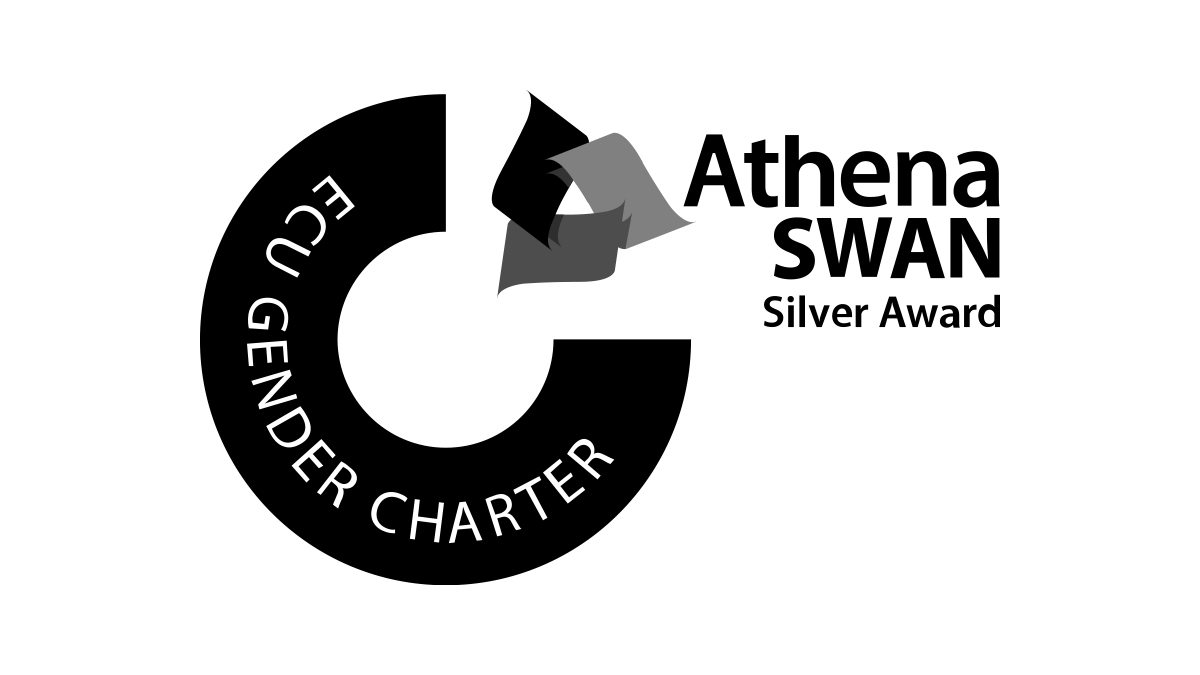The Athena SWAN Awards recognise success in developing employment practices to further and support the careers of women in science, technology, engineering and maths (STEM) departments in academia. Independent evaluations have shown that membership of the charter helps to advance women's careers and had a positive impact on changing the culture and attitudes within member institutions: simply put, universities and departments that hold Athena SWAN awards are more advanced in addressing unequal representation than those that don't.
Our school has signed up to the Athena SWAN principles.
The School of Mathematical Physical Sciences, comprising at that time the Department of Mathematics and Statistics and the Department of Meteorology, won the Silver Athena Swan award in 2010 and were delighted with a successful renewal of the Silver award in May 2014 and again in November 2017, as the school expanded to include Computer Science.
In our current submission, as the School of Mathematical, Physical and Computational Science, we discuss progress since our previous award including the expansion of the school to include the department of Computer Science.
As part of this work, gender-ethnicity attainment concerns in SMPCS led to a report (https://research.reading.ac.uk/sestem/wp-content/uploads/sites/98/temp1/SESTEM-UROP-report-Final.pdf) and EDI items are now routinely considered in T&L activities as a result. Initiatives have also sought to understand and mitigate stress, support early career researchers and enhance recruitment of female staff within the school.
The school has actively managed the renewal process. This was an excellent opportunity to engage much more widely with staff to raise awareness of the issues and to embed the Athena SWAN principles, including that of fairness for all. The renewal process included a staff and student survey and analysis of data to ascertain the real impact of our action plan since the 2017 award and the creation of an action plan for the next five years.
The key priorities that we seek to address in our future action-plan are:
I. Embedding the good practice that we have developed on gender equality into business as usual. Much of this progress has been disrupted by the COVID-19 pandemic. We need to understand where this has been the case, address the gendered impacts on our staff and students and ensure that our new mode of hybrid working does not further disadvantage anyone.
II. Supporting more women within the school to take up senior leadership roles in the school and the wider university. We will achieve this through dedicated training and mentorship for women at all career stages.
III. Making sure that all of our student recruitment proactively considers gender biases, emphasises that our courses are for everyone and encourages excellent students to apply to them.
IV. Understand and address how gender influences student progression and development.
As part of our broader WIDE agenda and committee, work on our Athena SWAN actions will also be aligned with our actions to address disadvantage linked to Race, Ethnicity, Sexual Orientation, Disability, Religious Faith and other characteristics.
